From Salsa and finance to upcycling, the story behind Amishi Shah’s UpCycleProject
When I heard Amishi Shah has abachelor’s degree in finance, a master’s in international management and is also a semi professional Latin dancer, I was quite confused over connecting this to a career in artistic waste recycling in Mumbai.

Amishi started the Upcycle Project to create objects of design out of recycled pieces of glass, plastic and other materials detrimental for the environment if not reused.
Finance and salsa dance may not be directly linked to this, but constituted dots the mysterious logic of life choices connected. Amishi explains, “Whilst I was studying for my master’s in the UK, I took a class that involved a lot of case studies on sustainability and unique businesses that stemmed from being environmentally, economically and socially sustainable.”
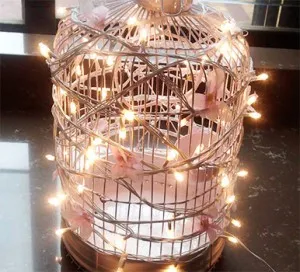
Latin American dance was the only artistic activity in Amishi’s life, which was otherwise dedicated to calculations and business plans. She represented India in several international salsa contests. These competitions helped her build confidence and learn how to coordinate with people, whether dance partners or team mates.
Upcyclingas a hobby and business has always existed. It is the process of creating new use for old objects once they can no longer perform their primary function. Although this has been done for millennia, it was officially termed in the late 1990s by the German author Gunter Pauli. As often happens, when something starts to be named, it is easier to individuate it, work with it and to make money out of it.
“I started experimenting and toying with the idea of upcycling in late 2013 after I returned to India from the UK,” recalls Amishi, adding, “I neither had much time nor experience, so it was like shooting arrows in the dark.” Still, she was enthusiastic, confident and brave enough to quit her job and dedicate her energy to the upcycling business.
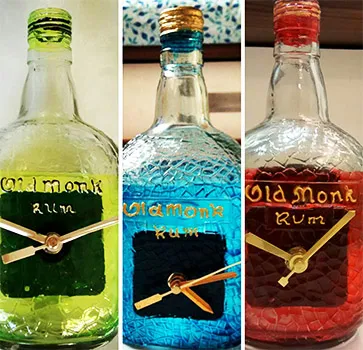
Although working with waste does not sound like an expensive venture, Amishi says it requires far more capital than one might think. “In a fairly nascent industry like upcycling, there is a lot of experimentation that has to be done, which is expensive and time consuming. I had some savings and investments from my previous jobs that I used to start the venture.”
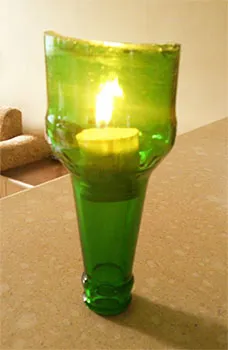
Amishi’s first precious source of raw material was her local raddiwala. Then, she began canvassing nearby areas to find suppliers. “I currently have a series of suppliers who deal in collection and intensive cleaning of waste,” she says.
The first upcycle projects were based on glass, because it is easily available. However, Amishi aims to adopt a mass production model, and glass is not functional enough for that. “It creates a lot of wastage with not as much consistency. There are several logistical issues, too, which is why I am slowly trying to move away from that,” says Amishi. Producing on a large scale to gain a big slice of the market is vital to differentiate the Upcycling Project from other similar businesses that for the moment have a small customer base. The company has a new catalogue addressed to tech-oriented companies, which consists in gifts made with e-waste such as keyboard keys frames, motherboard visiting card holders, and many others that can be purchased in a minimum quantity of 100 pieces.
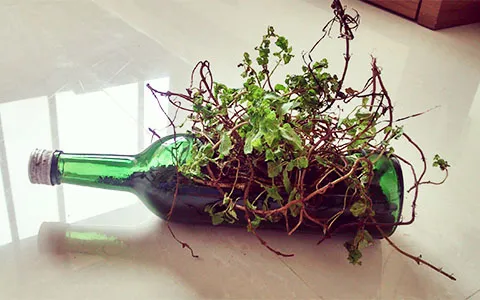
The Upcycling Project full-time team is limited to her and an intern. “Every piece of design we create requires a different type of creativity, and this can be achieved only if different brains work on that.” The Upcycle Project cannot afford to employ many graphic designers yet, so most of the work is outsourced.
However, it manages to break even due to its large market. “We deal with customers from Hyderabad, Bangalore, Mumbai, Delhi, Rajokri, Gurgaon, Pune, Indore, Nagpur and several other cities. We have had some great response for the products and the concept from individuals and companies,” Amishi explains.
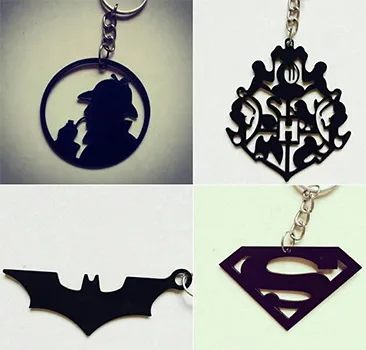
Amishi doesn’t hesitate to think big either and says, “I want to get into both the retail and bulk gifting segments, and explore international markets where the awareness for sustainability is much higher. I’d also like to get to a stage where the company has an annual turnover of at least five crores within the next 4-5 years,” she says. She adds, though, “Before that, I would really like to perfect our operations, product catalogue and back end.” For this reason she is not planning to raise funds in the near future.
Upcycling is a promising area of entrepreneurship, because waste management is and will be one of the greatest challenges in the world, especially in developing countries. The elimination of garbage in India is not a definitive solution as it happens mainly through open-air, often incomplete, incineration, which is highly polluting.
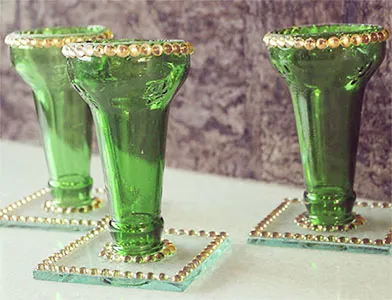
Still, it presents several difficulties to overcome. Amishi told us that in India, the waste management sector is disorganised. Often there is a parallel black market that prevents her from getting the right goods and quality materials. Moreover, upcycling is still a very niche sector in the world market, so Amishi needs to sensitize customers about the concept, besides selling her product.
Without problems, though, there would be no entrepreneurship. By speaking to different vendors and shop owners, walking through markets and researching online, the Upcycling Project managed to find material supply and get started. It remains to be seen how knowledge of finance, the energy of dancing and the power of an entrepreneur will converge to create a successful business.







